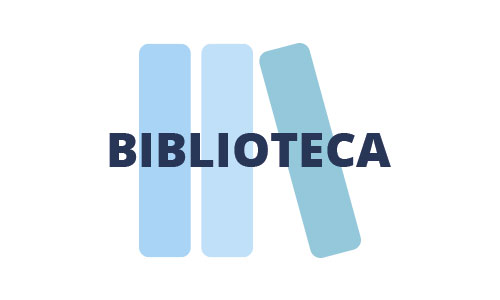María Ángeles Peláez Fernández

Área de conocimiento
Psicología Social
Vinculación laboral
Profesora Titular de Universidad
Titulación
Doctora en Psicología
Áreas de interés
- Inteligencia emocional
- Burnout en profesores de enseñanza secundaria
- Agresividad interpersonal
- Impacto del turismo en residentes
- Motivación, lealtad y satisfacción en turistas de la Costa del Sol
- Epidemiología, prevención y factores de riesgo de trastornos alimentarios
Docencia
Psicología Social del Turismo (Grado en Turismo)
- Aspectos Psicológicos de la Crisis y los Conflictos Familiares (Máster Universitario en Mediación)
Gestión del conflicto (Grado en Relaciones Laborales y Recursos Humanos)
Gestión
Secretaria del Departamento de Psicología Social, Trabajo Social, Antropología Social y Estudios de Asia Oriental (desde 11/10/2016 hasta 04/02/2021).
Coordinadora del Máster en Investigación e Intervención Social y Comunitaria (desde 01/10/2022).
Selección de Publicaciones
Yudes, C., Chamizo‐Nieto, M. T., Peláez‐Fernández, M. A., & Extremera, N. (2025). Core self‐evaluations and perceived classmate support: Independent predictors of psychological adjustment. Scandinavian Journal of Psychology, 66(1), 150-157.
Peláez-Fernández, M. A., Mérida-López, S., Yudes, C., & Extremera, N. (2024). How can the Social Family Climate Contribute to Emotional Intelligence in Preventing Suicidal Ideation and Promoting Life Satisfaction Among Adolescents?. Applied Research in Quality of Life, 19(5), 2915-2932.
Franco-Paredes, K., Díaz-Reséndiz, F. J., Peláez-Fernández, M. A., y Bautista-Díaz, M. L. (2024). Variables that explain disordered eating behaviors among women: the mediating role of body dissatisfaction. Eating and Weight Disorders-Studies on Anorexia, Bulimia and Obesity, 29(1), 1-8.
Castro-López, V. R., Franco-Paredes, K., Peláez-Fernández, M. A., y Trujillo Chi Vacuán, E. M. (2023). Emotional intelligence subdimensions as moderators in the association between body dissatisfaction and symptoms ofeating disorders among female Mexican adolescents. International Journal of Eating Disorders, 56(4), 770–777.
Peláez-Fernández, M.A., Romero-Mesa, J., Franco-Paredes, K., y Extremera, N. (2023). The moderating role of emotional intelligence in the link between self-esteem and symptoms of eating disorders. International Journal of Eating Disorders, 56(4), 778–782.
Peláez-Fernández, M. A., Mérida-López, S., Rey, L., y Extremera, N. (2022). Burnout, work engagement and life satisfaction among Spanish teachers: The unique contribution of core self-evaluations. Personality and Individual Differences, 196, 111727.
Peláez-Fernández, M. A., Sepúlveda, A. R., y Compte, E. J. (2022). Editorial: Eating Disorders and Weight Disorders: Assessment, Early Diagnosis, Prognosis, Treatment Outcome and the Role of Potential Psychological and Social Factors. Frontiers in Psychology, 13.
Peláez-Fernández, M.A., Rey, L., y Extremera, N. (2022). Pathways from emotional intelligence to well-being and health outcomes among unemployed: Mediation by health-promoting behaviours. Journal of Health Psychology, 27(4), 879-889.
Romero-Mesa, J., Peláez-Fernández, M. A., y Extremera, N. (2022). Inteligencia emocional y síntomas de trastornos alimentarios en adultos españoles: Evidencias sobre el rol mediador de las estrategias de regulación cognitivo emocional. European Journal of Education and Psychology, 15(1), 1-18.
Melguizo-Garín, A., Ruiz-Rodríguez, I., Peláez-Fernández, M.A., Salas-Rodríguez, J. y Serrano-Ibáñez, E.R. (2022). Relationship between group work competencies and satisfaction with project-based learning among university students. Frontiers in Psychology, 13:811864.
Peláez-Fernández, M.A., Romero-Mesa, J., y Extremera, N. (2021). From Deficits in Emotional Intelligence to Eating Disorder Symptoms: A Sequential Path Analysis Approach Through Self-Esteem and Anxiety. Frontiers in Psychology, 12:661151.
Peláez-Fernández, M.A., Mérida-López, S., Sánchez-Álvarez, N., y Extremera, N.A. (2021). Managing teachers' job attitudes: The potential benefits of being a happy and emotional intelligent teacher. Frontiers in Psychology, 12:661151.
Romero-Mesa, J., Peláez-Fernández, M.A., y Extremera, N. (2021). Emotional intelligence and eating disorders: a systematic review. Eating and Weight Disorders-Studies on Anorexia, Bulimia and Obesity, 26(5), 1287-1301.
Peláez-Fernández, M.A., Chamizo-Nieto, M.T., Rey, L., y Extremera, N. (2021). How Do Cyber Victimization and Low Core Self-Evaluations Interrelate in Predicting Adolescent Problematic Technology Use? International Journal of Environmental Research and Public Health, 18, 3114.
Peláez-Fernández, M.A., Rey, L., y Extremera, N. (2021). A Sequential Path Model Testing: Emotional Intelligence, Resilient Coping and Self-Esteem as Predictors of Depressive Symptoms during Unemployment. International Journal of Environmental Research and Public Health, 18, 697, 1-11.
Peláez-Fernández, M.A., Rey, L., y Extremera, N. (2019). Psychological distress among the unemployed: Do core self-evaluations and emotional intelligence help to minimize the psychological costs of unemployment?. Journal of Affective Disorders, 256, 627-632.
Luque-Gil, A.M., Gómez-Moreno, M.L., y Peláez-Fernández, M.A. (2018). Starting to enjoy nature in Mediterranean mountains: Perception of crowding and satisfaction. Tourism Management Perspectives, 25, 93-103.
Almeida-García, F., Peláez-Fernández, M.A., Balbuena-Vázquez, A., y Cortés-Macías, R. (2016). Residents' perceptions of tourism development in Benalmádena (Spain). Tourism Management, 54, 259-274.
Rey, L., Extremera, N. y Peláez-Fernández, M.A. (2016). Linking social support to psychological distress in the unemployed: The moderating role of core self-evaluations. Social Indicators Research, 127, 435-445.
Peláez-Fernández, M.A., Extremera, N., y Fernández-Berrocal, P. (2015). Perceived emotional intelligence and aggression among adults: The moderator role of gender. Australian Journal of Psychology, 67(3), 140-148.
Acinas, P., Robles, J. I., y Peláez-Fernández, M.A. (2015). Nota suicida y autopsia psicológica: Aspectos comportamentales asociados. Actas Españolas de Psiquiatría, 43(3), 69-79.
Peláez Fernández, M.A., Ruiz-Lázaro, P.M., Labrador, F.J., y Raich, R.M. (2014). Validación del Eating Attitudes Test como instrumento de cribado de trastornos de la conducta alimentaria en población general. Medicina Clínica (Barcelona), 142(2), 153-155.
Peláez-Fernández, M.A., Extremera, N., y Fernández-Berrocal, P. (2014). Incremental prediction and moderating role of the perceived emotional intelligence over aggressive behavior. Spanish Journal of Psychology, 17, E15, 1-11.
Peláez-Fernández, M.A., Labrador, F.J. y Raich, R.M. (2013). Norms for the Spanish version of the Eating Disorders Examination Questionnaire (S-EDE-Q). Psicothema, 25, 107-114.
Peláez-Fernández, M.A. (2013). Burnout and associated factors in primary care physicians. Atención Primaria, 45(2), 123-124.
Peláez-Fernández, M.A., Labrador, F.J. y Raich, R.M. (2012). Validation of the Spanish Version of the Eating Disorder Examination Questionnaire (S-EDE-Q) for the screening of eating disorders in community samples. Spanish Journal of Psychology, 15(2), 817-824.
Peláez-Fernández, M.A., y Extremera, N. (2011). The control dilemma in eating behavior: Influence of temptation cues in restrained versus unrestrained eaters. Psicothema, 23(4), 587- 592.
Raich, R.M., Portell, M. y Peláez-Fernández, M.A. (2010). Evaluation of a School-Based Programme of Universal Eating Disorders Prevention in the School. Is it More Effective in Population at Risk? European Eating Disorders Review, 18(1), 49-57.
Peláez-Fernández, M.A., Labrador, F.J. y Raich, R.M. (2008). Comparison of one-stage vs. two-stage designs in the estimation of eating disorders prevalence in community samples. Spanish Journal of Psychology, 11(2), 542-550.
Peláez-Fernández, M.A. (2008). Epidemiology of eating disorders among adolescent and young scholastic population in the region of Madrid (Spain). Dissertation Abstracts International: Section B: The Sciences and Engineering, 69(1-B), 237.
Peláez-Fernández, M.A., Labrador, F.J. y Raich, R.M. (2007). Prevalence of Eating Disorders among Adolescent and Young Adult Scholastic Population in the Region of Madrid (Spain). Journal of Psychosomatic Research, 62(6), 681-690.
Peláez-Fernández, M.A., Labrador, F.J. y Raich, R.M. (2005). Prevalence of eating disorders: Methodological considerations. International Journal of Psychology and Psychological Therapy, 5(2), 131-144.




